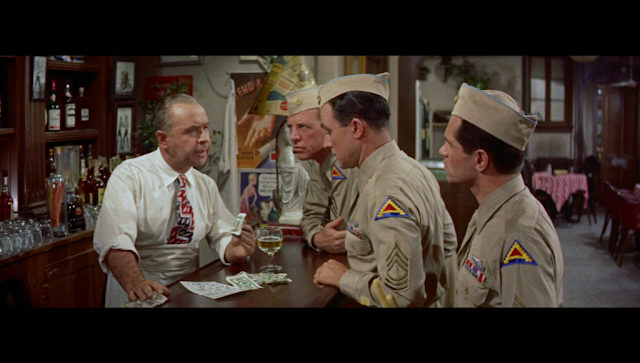Egotism is accounted a sin, or at best a character flaw, but what would art, at least since the Renaissance, be without it? Imagine the history of motion pictures without the egotism of John Ford, Alfred Hitchcock, or Orson Welles, not to mention countless movie stars. So it comes as a bit of a shock to find David Thomson, in his essay on
Singin' in the Rain in
Have You Seen ...?, making reference to "[Gene] Kelly's rather frantic ego." I do know what he means: I've always found the "Broadway Melody/Broadway Rhythm" number overlong and overdone, suggesting Kelly's attempt at being regarded as "serious" dancer, especially in the pas de quatre with Cyd Charisse, her train, and a wind machine. And its ending, with the zoom-in-close of Kelly's face, does seem a bit
de trop. Thomson also hints that producer Arthur Freed may have been indulging his ego by loading the film with his and Nacio Herb Brown's catalog of songs, instead of those of better songwriters. Freed, as the head of the legendary "Freed Unit" at MGM, had won a best picture Oscar for another Gene Kelly musical based on a songwriter's catalog,
An American in Paris (Vincente Minnelli, 1951), which was wall-to-wall George Gershwin. And even though
Singin' in the Rain is a better movie, it might have been nicer if it had songs by Harold Arlen or Cole Porter or Rodgers and Hart. Porter at least gets plagiarized in Donald O'Connor's "Make 'em Laugh" number, the tune for which is virtually identical to that of "Be a Clown," which Porter wrote for the Freed-produced
The Pirate (Vincente Minnelli, 1948). That said, the Freed-Brown songs are entirely appropriate to the era depicted: They date from such 1929 MGM musicals as
The Broadway Melody (Harry Beaumont) and
The Hollywood Revue of 1929 (Charles Reisner), exactly the ones parodied in
Singin' in the Rain's montage of early movie musicals. My point is that egos are not enough to spoil the wonder that is
Singin' in the Rain, widely regarded as one of the greatest movie musicals, and in my opinion just plain one of
the great movies. Much credit goes to the expert comedy writing of Betty Comden and Adolph Green, and to Harold Rosson's cinematography. Kelly and Stanley Donen wisely did what directors of movie musicals so often fail to do: rely on long takes and full-body shots during dance numbers. As for the performers, no one in the film, and that includes Kelly and O'Connor, ever reached this peak again. Debbie Reynolds was too often betrayed into perkiness, but she is human and appealing here. Jean Hagen stole scenes from everyone and received one of the movie's two Oscar nominations -- the other was to Lennie Hayton for scoring -- but her movie career stalled and she wound up doing TV guest appearances. As for egotism, it pains me to remember that
Singin' in the Rain was not nominated for the best picture Oscar winner for 1952. The winner was
The Greatest Show on Earth, directed by one of the great egotists, Cecil B. DeMille. Some egotists are geniuses; others are hacks.












